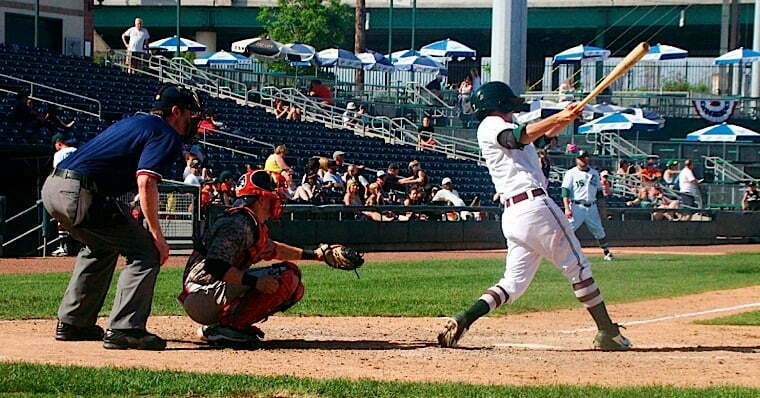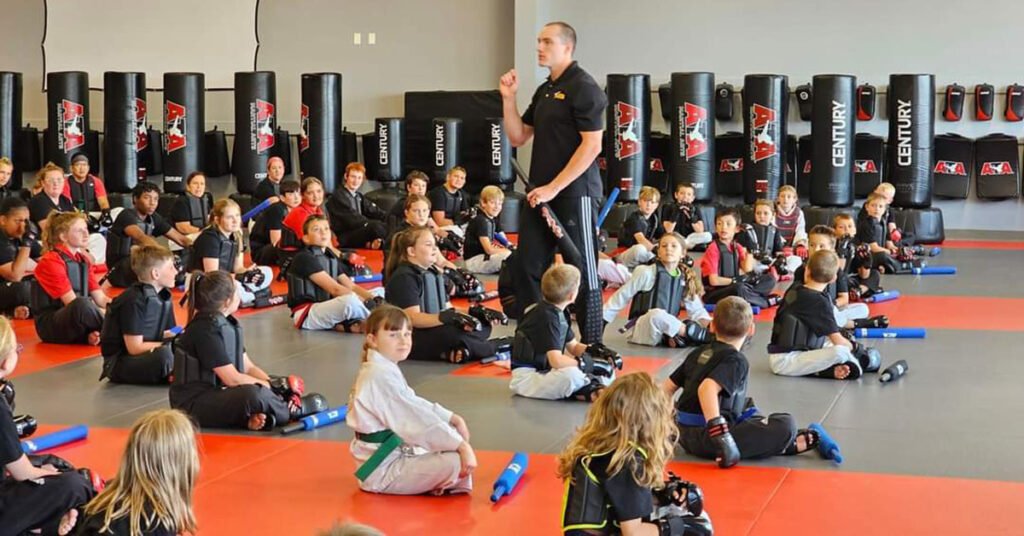Gary's U.S. Steel Yard, home of the RailCats, where a child's game is a way of life.
by Ben Smith
Dreams are not born here, not in this small gem of brick and wrought-iron, not in this lovely green space springing up in the lee of toll roads and train tracks and belching smokestacks. Dreams don't even grow to manhood here.
What they do is refuse to die.
They refuse to go gently into these soft summer nights, where a child's game–baseball–becomes a way of life not easily relinquished. And so it's the Gary SouthShore RailCats vs. the Sioux Falls Canaries this particular soft night, and let's get to the not relinquishing.
There on the mound is the side-arming dealer Kyle Ruwe for the visitors, who might have come in with a 1-4 record and 7.31 ERA but tonight is mowing down RailCats like he's Jeff Samardzija of the Cubs, pitching this same night 40 miles and a world away. There at the plate is Wally Backman Jr., 28 years old, 11 years a pro, still chasing the game that rewarded his namesake father with 14 seasons in the major leagues.
Ruwe comes set, sidewheels a changeup. Backman swings, misses. Welcome to life in the independent American Association, aka the Northern League prior to this season.
It's a refuge for kids coming up and no-longer-kids hanging on, a place for ballplayers to land who, for whatever reason, are no longer being paid by a major-league organization.
“There's all kind of different guys–older guys, younger guys, guys on the way up, guys on the way down,” says the RailCats radio broadcaster, Dan Vaughan. “It's guys that just have fun playing baseball, which is the cool thing about it.”
Of course, it's more than just that.
“This is their career,” says RailCats manager Greg Tagert, who's been the manager here for 10 seasons and has guided the RailCats to three league titles, the most recent of which was just last year. “This is what they do. Yeah, they may hold down a job in the offseason, but it really is an offseason. Because their career is baseball.”
And it is fundamentally different here than elsewhere in the minor leagues. Off to the east, in South Bend and Fort Wayne, it's low-A ball in the Midwest League, and the players are all farmhands of Arizona and San Diego, 19, 20, 21 years old. Here at the U.S. Steel Yard in Gary, the age is 21 to whatever; last year, Tagert says, the oldest RailCat was 37 years old.
And their stories are just as varied.
Somewhere in the roomy home clubhouse, where players while away the time before first pitch by playing cards, grazing on the cold-cut buffet or (this being 2014) bury their noses in their iPhones, there's a pitcher named James Parr. He's 28 and hails from Albuquerque, N.M. And back in 2008 and 2009, he pitched in five games for the Atlanta Braves.

hanging on—and most of all, for athletes who love the game of baseball.
He's also one of the older RailCats this season. The oldest is catcher Craig Maddox, who's 29. The youngest is infielder Caleb Palensky, who's 22 and just joined the club.
“The dynamic on the team is so unique that the only other place it exists really is in the major leagues itself,” says Tagert, who's 51 and has been managing or coaching in professional ball for 27 years. “There are backstories here, whether it's coming off injuries or it's players that just caught up in the cliche ‘the numbers game.'
“Top-round prospects, guys who were first-rounders who got lots of money. We've had those guys. But probably more the norm than anything is that career minor leaguer–that guy who's been in eight to 10 minor league cities in his career. That player, by the age of 28, 27, if it's a person who loves being at the park, loves what he does, that person can continue playing for a long time.”
Backman's that kind of guy. Out in the clubhouse, he leans against a table beneath a huge RailCats logo and takes you through his journey: Drafted by the Rangers in 2004, played four years in the organization, wound up with Joliet in the Northern League in 2009. Played there for a couple years, played in Tucson (Arizona) for a year or so, played three in Sioux City back in the Northern League before getting hurt last year, playing out his contract and signing with the RailCats.
“I wanted to play for a manager that wants to win, that runs a good team and is always striving to win and make his club better,” says Backman, who, oddly enough, didn't start playing baseball until his dad retired and the family settled in Oregon when he was 10 or so. “You know, there's a range of guys in this league. You go out there and there's a different competition every night. You're either facing a low-A guy, or you're facing a guy who pitched in the big leagues. So you prepare yourself every day the same and try to go out there and do the best you can.”
For Backman this night, that means going 2-for-4 with an RBI in a 6-3 loss to the Canaries. It drops the RailCats to 20-16 on the season, which still leaves them comfortably in front in the Central Division of a 12-team league that sprawls from Winnipeg in Canada to Amarillo in Texas.
Not that the fans mind. There aren't many this night–a thunderstorm and the threat of more holds the attendance to 1,917–but the RailCats are pulling in 3,725 fans per game to the Steel Yard, a handsome 6,139-seat facility that was built in 2002 and includes wide concourses, a video board in center and a unique vista.
Just beyond center field, the South Shore Line rumbles past. Beyond that looms the Interstate 80/90 overpass, traffic rumbling steadily east toward Ohio. And beyond that, graffiti-scarred freight cars clatter past, and billows of white smoke rise from their stacks.
Yet the RailCats thrive here. Tonight, down behind home plate, there's a clot of kids all dressed in red; say hello to the 9U Shock from just down Interstate 65 in Schererville. And on the concourse, behind a table piled high with signed bats and balls and copies of his book, “I Told You I Wasn't Perfect,” sits Tigers legend Denny McLain, for whom the U.S. Steel Yard has become a regular stop on the lucrative memorabilia circuit.
“Two hundred appearances a year. Everywhere,” McLain says–and then hands out a business card that reads Top of the Mound Productions Inc.
It's a small reminder of the hold baseball still has on America, even here, even now in the deep shadow of the NFL.
“I get asked all the time, ‘What is independent baseball?'” says Tagert, whose fondest baseball memory is busing back 13 hours from Wichita last year after clinching the title, and finding 500 fans waiting for them at midnight. “What it is, the difference is, it belongs to this community. There are 3,000 people a night that come here and really feel like the RailCats belong to them. The RailCats have become a special place, and that's what we've tried to at least have the culture be about here.
“I wouldn't trade this stadium for any place.”




